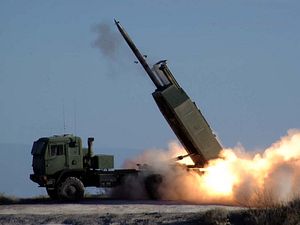My previous column investigated the difficulty of creating and maintaining and enduring international order, and the role of arms control in such a project. In short, arms control agreements help to alleviate unnecessary competition by preventing states from trying to achieve a destabilizing advantage in certain kinds of systems.
The Washington Naval Treaty, for example, locked in a balance of capabilities between Britain, the United States, and Japan for a period of about 15 years in the interwar period, allowing each to shift resources away from military production and towards more useful endeavors. The arms control agreements of the late Cold War successfully ramped down an extraordinarily dangerous period of power transition.
The problem is that arms control agreements depend on particular constellations of power relations and on particular technological contexts. If either changes, then the arms control agreement becomes precarious. On the technological side, this should be painfully obvious; maintaining the Washington Naval Treaty after World War II would have been pointless, as the United States and the Soviet Union had no need of a treaty to limit battleships because neither had need for battleships.
It follows that the greater the technological detail of any given arms control agreement, the less robust that such an agreement will be in the face of technological change. Changes in technology can make controlled systems irrelevant, or alternatively can increase the interest of competitors in acquiring controlled systems. And so arms control agreements are inherently limited in temporal effect; eventually, they will either become irrelevant or the parties to the agreement will find reasons to defect.
Changes in the distribution of power have an interactive effect with changes in technology. Even if the Washington Naval Treaty could have been updated to reflect the new preponderance of submarines and aircraft carriers in naval power, it would have made little sense at the dawn of the Cold War. A treaty limiting aircraft carriers would only have limited the United States, and not the Soviet Union, while a treaty limiting submarines would have privileged the United States and its fleet of aircraft carriers.
In the case of the Intermediate-Range Nuclear Forces Treaty, as I have argued in other places, both the structural and technological foundations of the treaty have decayed to the extent that it no longer serves the interests of either Russia or the United States.
This hardly means that arms control has no role in the management of security affairs in the Asia-Pacific, however; it simply means that the technologies of focus need to change, and the players need to change. The post-World War I arms control agreements reduced unnecessary tension between the great powers, and relieved major states of the need to spend egregious sums on warships that would have become obsolete in short order.
The arms control agreements of the 1980s enabled the Cold War to come to glide to a gentle stop by ensuring that the United States would take only limited advantage of Soviet weakness. We are fast coming upon a moment where the United States and China may decide that they need to manage their competition through multilateral institutional means, but we’re not there yet, and the tools that Washington used at the end of the Cold War won’t suffice.
The views expressed here are his personal views and do not necessarily reflect those of the Department of Defense, the U.S. Army, the Army War College, or any other department or agency of the U.S. government.

































